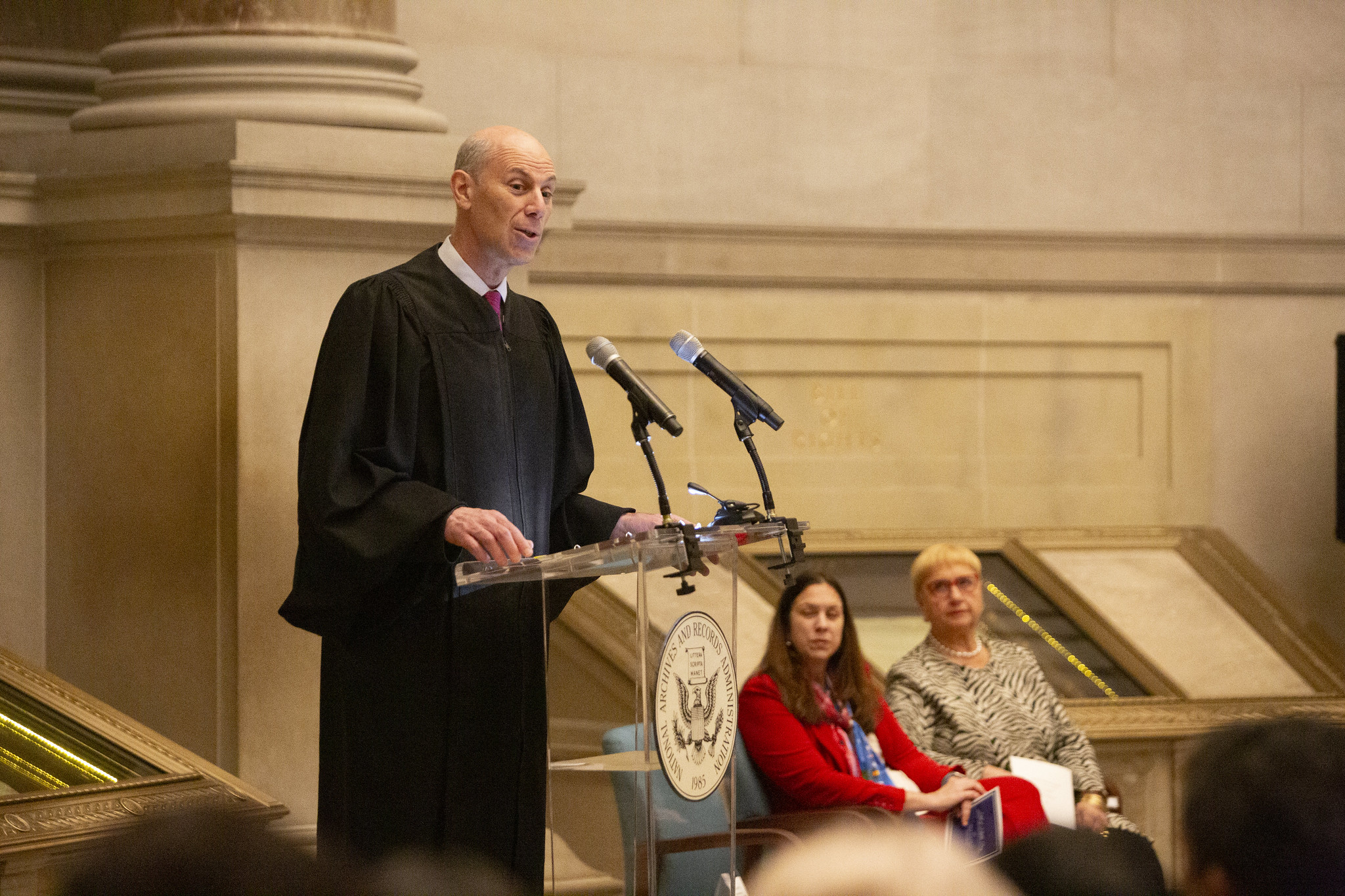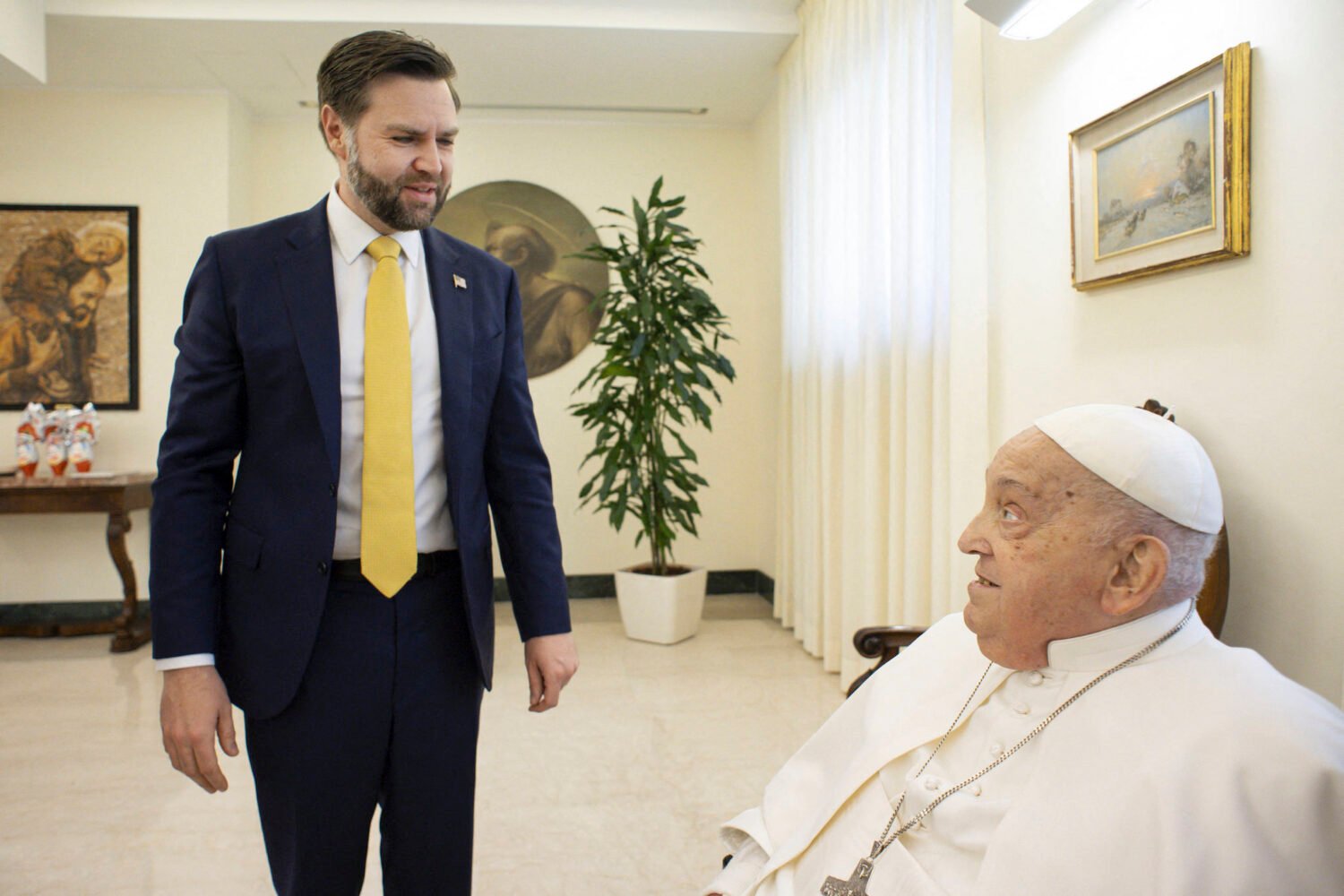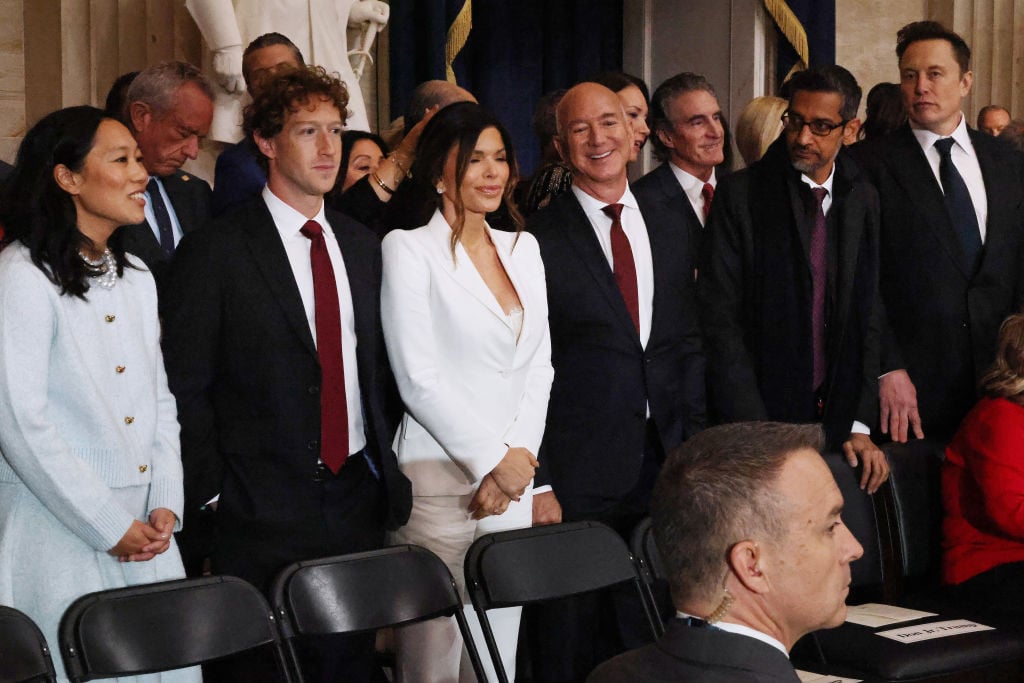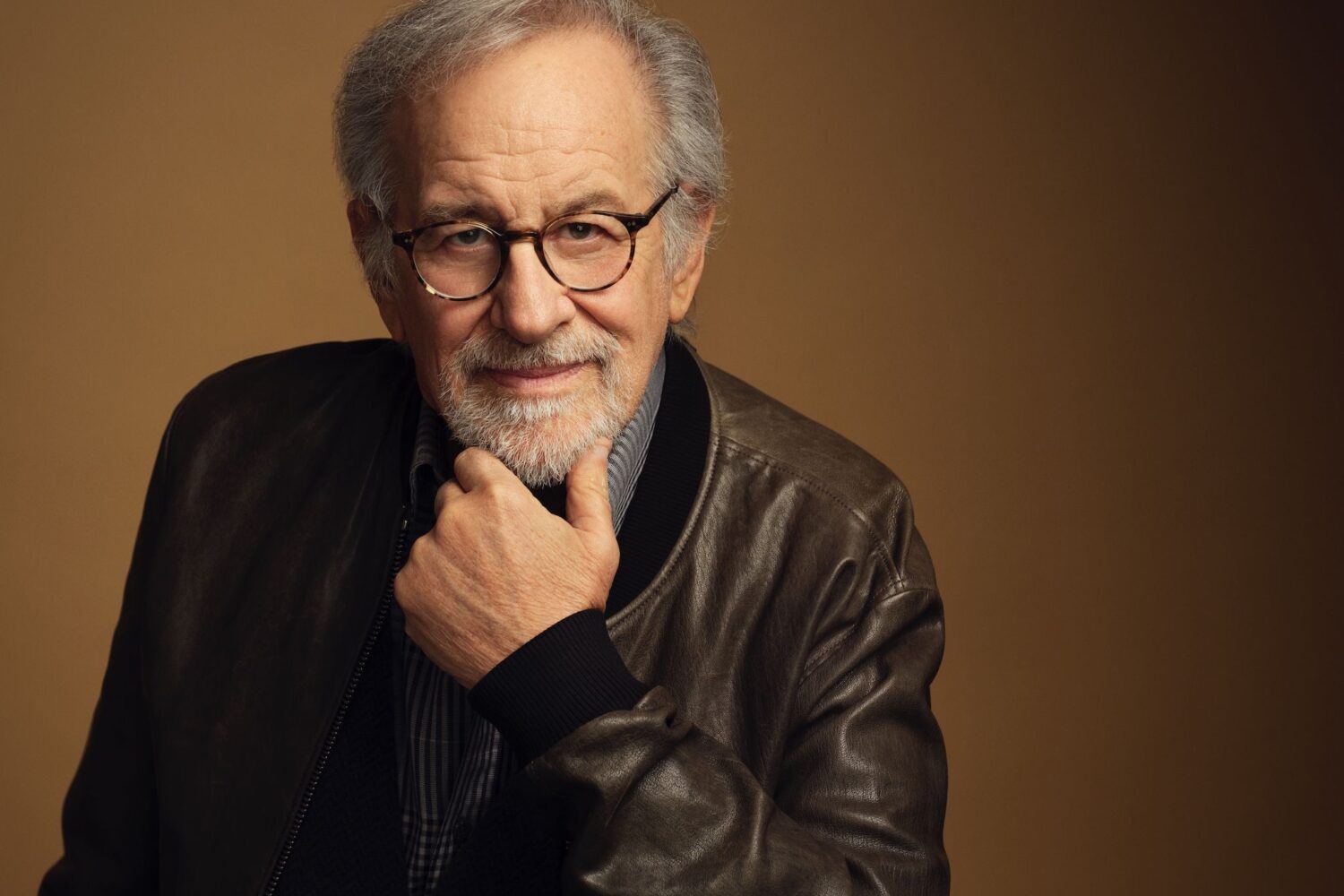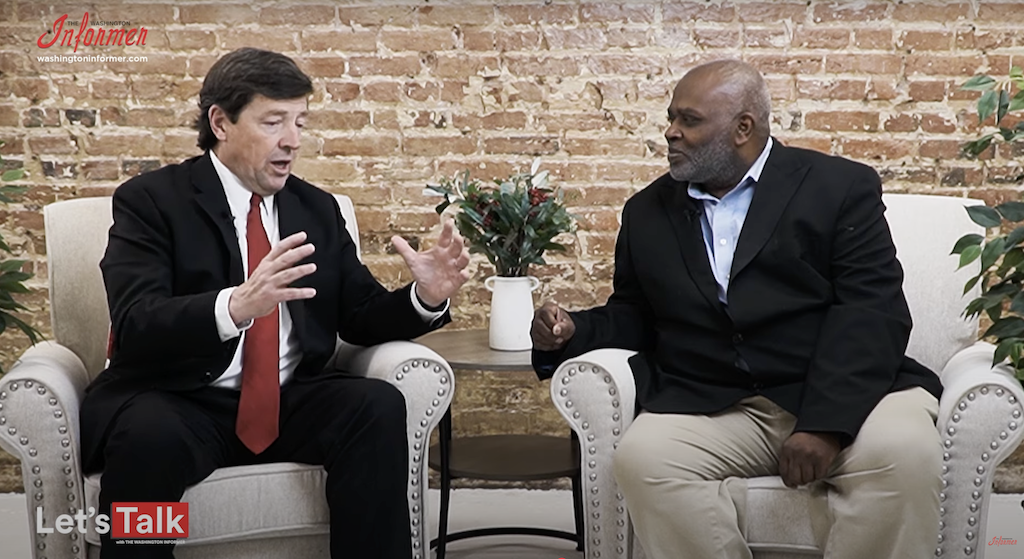Meta’s antitrust trial kicked off on Monday as CEO Mark Zuckerberg took the witness stand to defend his social media empire against the FTC’s claims of a monopoly. Presiding over the case is Judge James E. Boasberg, the chief judge of the US District Court in DC.
Boasberg towers over the American legal landscape (and not just because he’s 6’6″). As chief judge of DC’s federal court, Boasberg has overseen a number of high-profile cases. Most recently, he’s been in the news for his actions surrounding Trump’s deportation of alleged Venezuelan gang members. Below, find a fast-facts sheet of five things to know about the judge.
1. This isn’t his first high-profile case.
Last month, President Trump signed a proclamation ordering the deportation of Tren de Aragua gang members, then quickly began filling planes with alleged gang members and flying them out to the notorious El Salvadoran prison CECOT. Boasberg soon ordered a temporary halt to the deportations and called for the flights to be turned back around, a move that pushed him into the national spotlight and provoked the ire of Trump and his crew. (More on that below.)
Though the Meta and deportation legal battles are Boasberg’s most recent high-profile cases, they’re far from his only ones. In 2023, Boasberg ordered Mike Pence to testify to a federal grand jury during the special counsel’s investigation into the January 6 riots. And in 2017, Boasberg rejected a lawsuit seeking the release of Trump’s tax returns, stating that only Congress or Trump himself could publicize those records.
Boasberg played a role in the 2016 election by ordering the State Department to publicly release Hillary Clinton’s emails from her private server, a major controversy that conservatives had rallied around.
In 2012, Boasberg also dismissed a lawsuit asking the Obama administration to release photos and videos from the US military operation that killed Osama bin Laden.
Expect to continue seeing more Boasberg in the news: one of the most significant cases coming up on his docket is a Signalgate lawsuit against the Trump administration. The judge is also considering whether he may hold Trump officials in contempt for refusing to halt deportation flights even as he was trying to arrange emergency court proceedings.
2. Trump recently called for his impeachment.
After Boasberg halted Trump’s deportations last month, the President, in characteristic fashion, took to social media to lambast the federal judge. “This judge, like many of the Crooked Judges’ I am forced to appear before, should be IMPEACHED!!!” Trump wrote in a post shared to Truth Social.
This prompted a rare rebuke from Supreme Court Chief Justice John Roberts, who responded in a statement: “For more than two centuries, it has been established that impeachment is not an appropriate response to disagreement concerning a judicial decision.”
Meanwhile, House Republican Brandon Gill filed articles of impeachment against Boasberg, who he characterized as a “radical activist” judge. While this resolution has yet to be taken out to the House floor for a vote, it’s unlikely to be more than a conservative pipe dream: the GOP simply doesn’t have the two-thirds Senate majority needed to convict and remove the judge. But then again, if there’s a will, there’s a way: House Republican Andy Biggs has more recently introduced a resolution aimed at firing Boasberg for failing to remain in “good behavior,” and this would require only a simple majority in the House and Senate to pass.
3. Despite Trump’s branding of Boasberg as “a Radical Left Lunatic,” he’s actually garnered plenty of respect across the aisle.
While Trump is wont to paint Boasberg as a leftist on the loose, what he often overlooks is that Boasberg was first appointed to the bench by Republican president George W. Bush, who nominated the judge to the DC Superior Court in 2002.
Even when Obama selected Boasberg for the federal bench in 2011, Boasberg’s nomination enjoyed strong bipartisan support, as evidenced by his unanimous confirmation. The Republican senators who voted for Boasberg included eventual Trump cabinet members Marco Rubio and Jeff Sessions. Brett Kavanaugh administered the oath at Boasberg’s investiture ceremony.
Speaking of Kavanaugh, Boasberg’s ties with the conservative Supreme Court Justice run deep: back at Yale Law School, they lived together as housemates, and the two are still close friends to this day. The college pals referred to themselves as the “cubs” or “cubbies,” according to a fellow housemate Kenneth Christmas, and in 2004, Boasberg showed up at the White House to celebrate his buddy Kavanaugh’s wedding.
4. He served on the super-secret Foreign Intelligence Surveillance Court.
From 2014 to 2021, Boasberg served as a judge on the Foreign Intelligence Surveillance Court (FISC), with a brief stint as presiding judge from 2020 to 2021. The FISC is a specialized federal court designed to review intelligence community activities, such as approving wiretaps or surveillance on suspected terrorists. Proceedings are heard in private and many decisions are kept secret to protect national security.
While there’s much we’ll probably never know about Boasberg’s FISC career, there are a few notable public moments. As presiding judge, Boasberg encouraged the declassification of material related to the FBI’s probe into potential Russian interference during Trump’s 2016 campaign. In 2020, Boasberg barred the FBI agents involved in the faulty wiretapping of former Trump campaign adviser Carter Page from pursuing other national security wiretaps. Later that year, he also released a FISC ruling revealing that the FBI had committed widespread privacy violations through its warrantless surveillance program.
5. He has a penchant for peppering his rulings with pop culture references.
Perhaps the most powerful Swiftie in the nation, Boasberg cited Miss Americana herself in a 2024 opinion regarding changes to healthcare plans in Indiana, writing, “Because they’ve seen this film before (and they didn’t like the ending), Defendants seek to leave out the side door. Cf. Taylor Swift, Exile, on Folklore (Republic Records 2020).”
In 2022, Boasberg decided to go with a Star Trek reference when dismissing a J6 lawsuit from a Trump aide, writing, “Plaintiff may resist this conclusion, but as Star Trek’s Dr. Spock intoned, ‘Resistance is futile.’ ” Later that same year, he also quoted the Fugees to dismiss a Justice Department lawsuit seeking to have Las Vegas casino mogul Steve Wynn register as a Chinese government foreign agent. “Ready or not, here I come, you can’t hide,” he wrote.
And to present before the jury a final exhibit of Boasberg’s passion for pop culture: the judge has repeatedly appeared on Shakespeare Theatre Company’s mock trial series. In 2022, he starred as a judge in a Much Ado About Nothing mock trial, and in 2018 as a prosecutor for Polonius in Hamlet.

